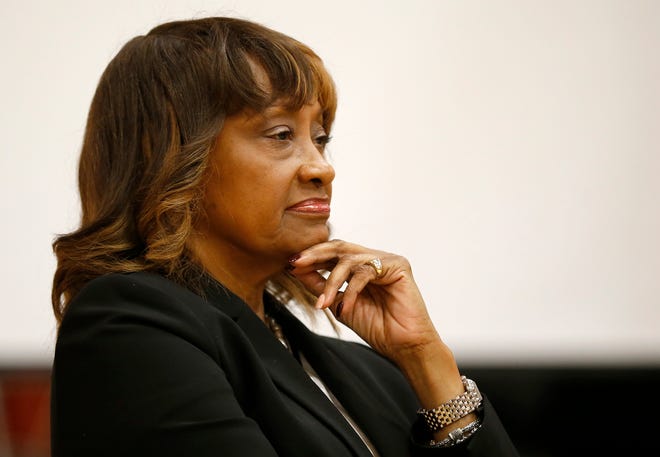Cincinnati City Council pledged to take a closer look at how city policies could better promote racial equity after the death of George Floyd, a Black man who died in Minneapolis Police custody early this year, spurring a racial justice movement that followed.
This week, city council is set to name a who’s who of Cincinnati Black leaders to begin work on recommendations dismantling racism and promoting racial equity.
Renee Mahaffey Harris, president and CEO of The Center for Closing the Health Gap.
Co-chairing the task force: Cincinnati Health Commissioner Melba Moore, representing the Cincinnati Health Department, and Renee Mahaffey Harris, representing the Center for Closing the Health Gap.
Members:
Bishop Bobby Hilton, representing the National Action Network
Dr. Roosevelt Walker, representing the Cincinnati Medical Association
Louis Arnold, representing the Sentinel Police Association
Joe Mallory, representing the Cincinnati NAACP
Eddie Koen, representing the Urban League of Greater Southwestern Ohio
William West, representing the Cincinnati African American Firefighters Association
Rev. Damon Lynch, III, representing the Community Economic Advancement Initiative
Eric Kearney, representing the African American Chamber of Commerce
Denisa Porter, representing the All In Coalition
Edith Thrower, representing the Southern Christian Leadership Conference
Ali Kathman, representing Hamilton County Public Health
“The individuals chosen to organize the task force are leaders of organizations that already are working on systemic racism issues,” said Councilwoman Jan-Michele Lemon Kearney. Her husband Eric Kearney, president of the Cincinnati Northern Kentucky African American Chamber, is among those who will be on the task force.
“As a group, we can support each other’s work, add to it, and determine where the gaps are,” Lemon-Kearney said.
Taskforce positions are unpaid and last two years. Lemon-Kearney expects more people will be added as the group begins work.
Councilman P.G. Sittenfeld added, “Cincinnati and Hamilton County have declared racism a public health epidemic, and out of that we’re moving forward on substantive action to take our tale of two cities and make us one.”

